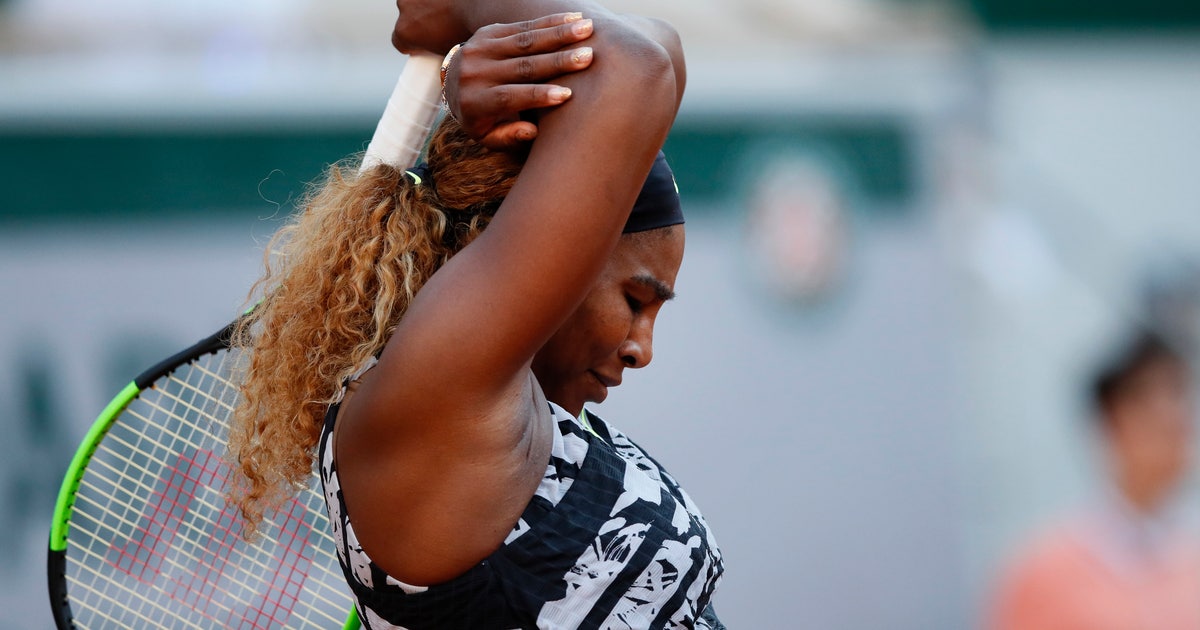Analysis: Of course Serena Williams unsatisfied by Paris run


PARIS (AP) — Serena Williams hadn’t played much all year. Hadn’t practiced much, either. She dealt with an injured ankle in January, a viral illness in March, then a bad left knee in March, April and May.
She wasn’t sure whether it even made sense to show up for the French Open at all.
So, a reporter wanted to know, given all of that, would the 37-year-old Williams have been satisfied ahead of time if someone had told her she would wind up making it to the third round?
Hahahahahaha. Are you kidding? This is Williams we’re talking about here, as talented and competitive an athlete as there is.
“I would have thought they were lying, because I wouldn’t expect to have gotten only to the third round,” came the reply Saturday evening, after Williams was beaten 6-2, 7-5 in that round by 20-year-old American Sofia Kenin. “So I would have been like, ‘That’s not true.’”
Here is the way Williams’ coach, Patrick Mouratoglou, summed up her mindset: “She doesn’t come here to do second round, third round, quarters or semis. She comes to win.”
But here’s the thing: Williams needs to be closer to her highest level than she was in Paris if she is going to do what she wants to do, which is raise her Grand Slam trophy count. Right now she’s at 23, more than anyone in the professional era. In the history of tennis, only Margaret Court has more, with 24, some won against amateur competition.
On Sunday, Williams already was looking ahead, writing on Instagram: “Yesterday was not my day. But it’s about getting up time and time again after you fall. Here’s to a multitude of tomorrows.”
It’s not as if Williams can’t still summon the elite strokes and strategy necessary to thrive. She demonstrated that by getting to the finals at Wimbledon and the U.S. Open last year, when she returned to the tour following the September 2017 birth of her daughter.
Williams, though, is no longer at the stage of her career, or perhaps an age, where she can get by purely on her considerable will or muscle memory or champion’s aura.
Especially when facing gutsy opponents like the 35th-ranked Kenin.
“When you play Serena, you’ve got to control all the points, you’ve got to dictate, because she’s going to take control of the points,” Kenin said. “She’s the best of the best.”
This was Williams’ earliest Grand Slam loss since 2014, and her performance was as shaky as can be. She lost eight of the initial 10 games, ended up with twice as many unforced errors as Kenin and often was left shaking her head or muttering to herself or gesticulating in despair after dropping a point.
Since twisting her ankle along the way to blowing four match points in the Australian Open quarterfinals, Williams had played only four matches in 2019, going 2-2.
She pulled out of Indian Wells because she was sick, then the Miami Open and the Italian Open because of her knee.
“She had such a short period of time to prepare,” Mouratoglou said after the loss to Kenin. “All I know is, she was not ready and it was obvious, I think. … She was fighting, but she’s not prepared enough to win those matches.”
Williams agreed with that assessment.
“I’m just pretty far away, but … the optimistic part is I haven’t been able to be on the court as much as I would have,” she said. “That’s OK. At least I can start trying to put the time in now.”
To that end, Williams did not rule out entering a grass-court tuneup tournament ahead of the next Grand Slam tournament on the calendar, Wimbledon.
She hasn’t done that since 2011.
“I’m definitely feeling short on matches, and just getting in the swing of things. I don’t really like playing out points when I practice,” she said. “I have some time on my hands, so maybe I’ll jump in and get a wild card on one of these grass-court events and see what happens.”
As usual, all eyes will be on Williams when play starts at the All England Club on July 1.
“I want her to be ready,” Mouratoglou said. “Whatever we need to do we will do.”







